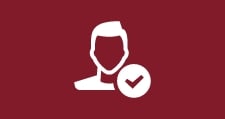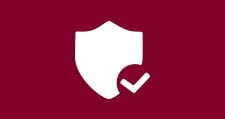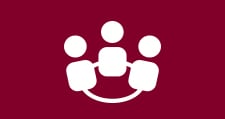University of Louisiana Monroe Online Degrees to Fit Your Life
Prepare to compete, succeed and contribute in an ever-changing global society through a transformative education with our high-quality, 100% online programs.
University of Louisiana Monroe
Designed with you in mind, our accelerated online education degree programs are respected, affordable and accessible—so you can achieve your career goals while working full time.

ULM Education Programs Online
Help all students learn in a diverse and ever-changing world with a 100% online education degree program from ULM. Offering multiple options in high-demand shortage areas, our accelerated online programs will prepare you to take on leading roles in education.
Read More »Featured ULM Online Program
Master of Education, Educational Leadership
Develop your understanding of the educational system and prepare to influence positive change.
View ProgramCore Values
As students and members of ULM faculty, we desire these values at all times.

EXCELLENCE
We relentlessly pursue excellence through diligent individual and collective efforts.

SCHOLARSHIP
We strive for the expansion of knowledge through teaching, research and creative works.

DIVERSITY
We value and respect differences because we are enriched by a broad range of ideas and perspectives.

RESPONSIBILITY
We believe that all of us have a duty to be conscientious stewards of entrusted resources.

INTEGRITY
We commit to honesty in conduct, adherence to promises and treating others with respect.

STUDENT-CENTERED
We seek to prepare students holistically for a meaningful life and service to humanity.

EXCELLENCE
We relentlessly pursue excellence through diligent individual and collective efforts.

SCHOLARSHIP
We strive for the expansion of knowledge through teaching, research and creative works.

DIVERSITY
We value and respect differences because we are enriched by a broad range of ideas and perspectives.

RESPONSIBILITY
We believe that all of us have a duty to be conscientious stewards of entrusted resources.

INTEGRITY
We commit to honesty in conduct, adherence to promises and treating others with respect.

STUDENT-CENTERED
We seek to prepare students holistically for a meaningful life and service to humanity.
Accreditation and Accolades
The University of Louisiana Monroe is accredited by the Southern Association of Colleges and Schools Commission on Colleges (SACSCOC™) to award associate, baccalaureate, master’s, specialist, and doctorate degrees.
The baccalaureate degree program in nursing at University of Louisiana Monroe Kitty DeGree School of Nursing is accredited by the Commission on Collegiate Nursing Education (http://www.ccneaccreditation.org).
The educator preparation programs at the University of Louisiana Monroe meet rigorous national standards for educator preparation set by the Council for the Accreditation of Educator Preparation (CAEP).
The University of Louisiana Monroe is accredited by the Southern Association of Colleges and Schools Commission on Colleges (SACSCOC™) to award associate, baccalaureate, master’s, specialist, and doctorate degrees.
The educator preparation programs at the University of Louisiana Monroe meet rigorous national standards for educator preparation set by the Council for the Accreditation of Educator Preparation (CAEP).
Request More Information
Submit the form below, and an Enrollment Specialist will contact you to answer your questions.
Discover what a ULM online degree can do for your future.
Submit this form, and one of our student support representatives will contact you to answer any questions and guide you through the process, from start to finish.
Or call 800-917-3236
By submitting this form, I am providing my digital signature agreeing that the University of Louisiana Monroe (ULM) and its agent, Academic Partnerships, may email me or contact me regarding educational services by telephone and/or text message utilizing automated technology or a pre-recorded message at the telephone number(s) provided above. I understand this consent is not a condition to attend ULM or to purchase any other goods or services.
Begin Application Process
Start your application today!
for help with any questions you have.

